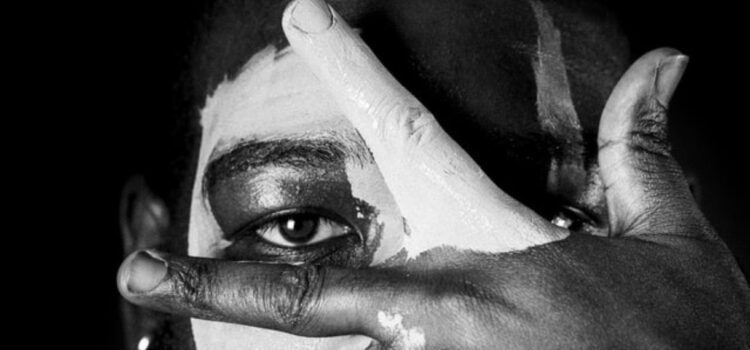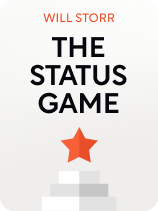

This article is an excerpt from the Shortform book guide to "The Status Game" by Will Storr. Shortform has the world's best summaries and analyses of books you should be reading.
Like this article? Sign up for a free trial here.
What causes social inequality? How does status cause inequality?
When a group playing a status game feels threatened by another group, it feels justified in demonizing its enemies and destroying lives to protect its status. The result is deep-rooted inequality where minorities suffer while an elite class thrives.
Let’s dive into what causes social inequality, according to The Status Game by Will Storr.
How Social Inequality Stems From Status
What causes social inequality? When a group playing a virtue-dominance game feels it’s under threat by another group, it feels justified in demonizing its enemies and destroying lives to protect its status. Because the group maintains a steadfast belief in its own morality, its members become so invested in the narrative of their own heroism that they experience what Storr calls “toxic morality.” These groups are then primed to commit acts of violence, such as colonialism and genocide, and to perceive these acts as virtuous.
For example, Storr writes, after the First World War, Germany lost its status as one of Europe’s great powers. Many Germans accepted the narrative that Jews were responsible for Germany’s loss and humiliation, but they focused less on Adolf Hitler’s message of antisemitism and more on his promises that the Nazi party could restore Germany’s status. Once the majority of Germans became invested in the Nazi party by virtue of the rewards (the status) they gained by participating, then its rules and beliefs could become more extreme, leading to the Holocaust.
(Shortform note: What Storr refers to as “toxic morality” is similar to what psychologists call “moral exclusion,” which occurs when we view certain people as outside the boundaries where our moral rules apply. The more different from us a group of people seems, the more likely we are to be prejudiced or discriminate against them. People who are morally excluded come to seem expendable, even nonhuman. Moral exclusion had catastrophic consequences in Nazi Germany, where discrimination and abuse against Jewish people became commonplace before the genocide began. The strategy worked because the Nazi Party promised solutions to Germany’s problems, exploiting people’s fear and frustration to gain their support.)
Status Games Perpetuate Injustice
Finally, a sixth consequence of status games gone wrong is the inequality they create or perpetuate. Some people have a lot of status, some have very little, and everyone wants more than what they have. Storr explains that while we think that we want equality, status games all but guarantee that what we really want is to gain more status and a higher place in the hierarchy. Status games also create the problem of an elite class, which always exists even if the game’s structure undergoes monumental change, like when a political system changes.
(Shortform note: Other experts agree with Storr that the competition for status perpetuates inequality. Sociologist Cecilia Ridgeway writes that inequalities in status are just as crucial as inequalities in resources and power in creating patterns of social inequality—and in establishing an elite class. Political theorist Hugo Drochon explains that the word “elite” captures the idea that a minority always dominates over the majority, even as the game changes and one group of elites replaces the last. And economist Vilfredo Pareto, who gave the word “elite” its modern meaning, believed that understanding what the elite class values enables us to understand society as a whole, since people with the most status shape everyone else’s values, too.)
According to Storr, people have long been attracted to the idea of a system that does away with inequality by eradicating the idea of personal property and wealth: a society where everything is shared and people live and work together. The problem is that the human desire to be more and have more than our neighbors is deeper, and older, than our systems of private property and wealth. (This, he says, is why Vladimir Lenin and Joseph Stalin’s Communist Party didn’t create an equal society without hierarchy, but instead produced new classes and privileges.) Storr notes that it’s impossible to eradicate our desire to have more status than our neighbors. It’s part of us, and we have to find productive rather than destructive ways to channel it.
(Shortform note: In arguing for a system that ends inequality in The Communist Manifesto, Karl Marx and Frederick Engels write that the defining goal of communism is to abolish bourgeois private property. Goals like ending private land ownership aimed to distribute wealth more equally and eliminate social classes. But other thinkers—including philosopher Harry Frankfurt, author of On Inequality—have argued that people are OK with unequal outcomes as long as they feel fair. These same ideas of fairness—along with our innate desire to have more than our peers—drive us to try to “keep up with the Joneses.” But experts point out that our efforts to keep pace with our neighbors as a way to maintain our social status don’t make us happy.)

———End of Preview———
Like what you just read? Read the rest of the world's best book summary and analysis of Will Storr's "The Status Game" at Shortform.
Here's what you'll find in our full The Status Game summary:
- How life is just a game of status and you're a player in it
- How the status game works and what you can do to avoid the toxicity
- What happens when the status games go wrong






